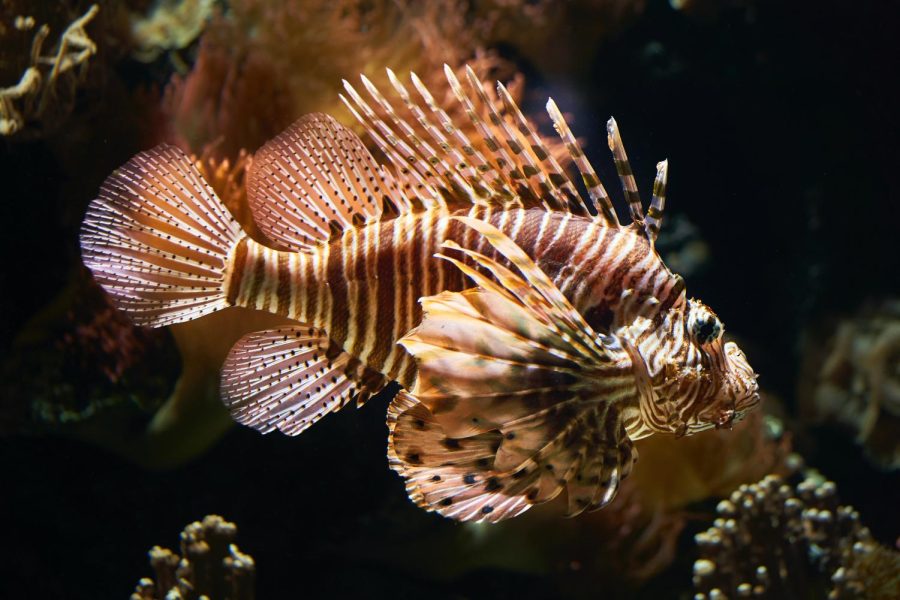Non-native Invaders: Lionfish attack Pensacola’s marine ecosystem
January 30, 2023
There is no shortage of invasive species in Florida, and Pensacola’s waters are no exception with the lionfish invasion that has been an ongoing battle since 2010.
Lionfish are native to the reefs of the Indo-Pacific; how they ended up in Florida waters is unknown, but the damage they are causing to the Florida marine ecosystem is noticeable.
The Florida Fish and Wildlife Commission (FWC) has expressed concern about the effects the invasive lionfish can have on native species and habitat. The FWC encourages divers to remove lionfish from Florida waters to limit the negative effects that these fish have on the marine ecosystem.
Their population has rapidly grown since their first sighting on Dania Beach, Florida, in 1985. These fish reproduce at an alarming rate, with females releasing up to 30,000 eggs per spawn.
The population increase has the potential to devastate the local reef habitat and health as they prey on and compete for food with local marine species that serve important ecological roles. Lionfish are known to eat prey that is more than half their own length.
The lionfish have no predators in their invasive location, making humans the only ones capable of controlling their population. There are no regulations on lionfish hunting in Florida, and hunting is open year-round. Despite being open all year, lionfish hunting is a difficult task. Lionfish are known to be difficult to catch with fishing hooks, making spearfishing and hand-held nets the most effective methods of catching them.
Lionfish can be dangerous to handle with their 18 venomous spines that can cause painful stings. “Stings can cause swelling, blistering, dizziness, necrosis, and even temporary paralysis,” according to the FWC.
The lionfish invasion is a battle that has been ongoing for several years now. There are initiatives and steps being taken to lower the population, such as lionfish tournaments and derbies, which encourage and support the removal of lionfish from Florida’s waters.
Between 2014 and 2021, Florida has held 170 tournaments, which have led to the removal of over 146,000 lionfish, according to the FWC. There have also been numerous lionfish derbies that have taken place between 2009 and 2022 that have removed 30,186 lionfish, according to the Reef Environmental Education Foundation.
These annual tournaments and derbies hope to round up as many of the invasive lionfish as they can. There has not been any announcement on when the 2023 tournaments and derbies will begin.
The damage done by the lionfish species is negatively affecting the Florida marine ecosystem, and the FWC and other environmental groups are continuing to work towards controlling and removing the invaders.


